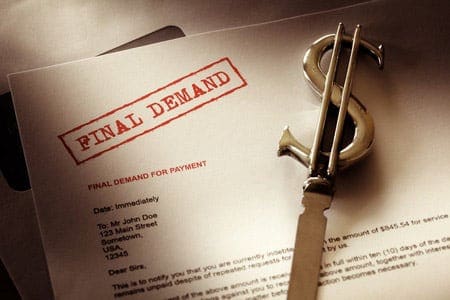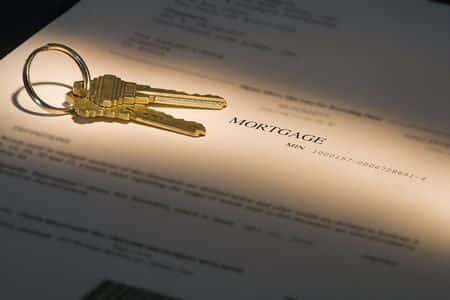How Your Property can be affected by Cross-collateralization Agreements
Cross-collateralization sounds like a frightening legal and financial term. What is it? Simply put, it is the use of one piece of collateral to secure more than one loan.
When you apply for a new loan, then your credit union or bank may use collateral that you already posted for and existing loan to act as collateral for your new, anticipated loan.
How do I identify a Cross-collateralization Agreement?
Read it! Before you sign any loan agreement, you need to spend some time reading the document. You cannot raise an issue with the contract at a later time with the explanation that you did not read it.
Most of the time the agreement should have a heading over a section called “Security” or “Security Interest.” If you agree to post any collateral for the loan, then there will be a description of the collateral and most of the time it will be listed in the “Security Interest” section of the contract.
As an example, if you are already paying for an automobile loan, and the new loan that you apply for now references the same automobile as collateral, chances are that this is a cross-collateralization agreement.
What Lenders use Cross-collateralization Agreements?
In our experience, we see that most credit unions use these types of agreements.
Because credit unions are careful to minimize the losses to their respective organizations, these lenders typically use cross-collateralization to help guarantee payment on the loans that they issue.

Can I Avoid a Cross-collateralization Agreement?
Yes. Assuming that you want a small personal loan, then one thing you can do is obtain the new loan from a different lender.
A different lender is unlikely to use collateral for its loan in a case where there may be a pre-existing lien on a piece of property. Another suggestion is to avoid borrowing at a credit union if you are concerned that you may unknowingly sign a cross-collateralization agreement.
If you need to learn more, call us today at 877-827-9006, or complete our easy to use contact form.
How can a Cross-collateralization Agreement affect me?
Let’s look at an example. Assume that you obtained an automobile loan at your local credit union and that you are still making payments on the automobile loan.
Next, let’s assume that you need to apply for a personal loan at the same credit union.
The lender might use the automobile as collateral for your personal loan. If so, this is a perfect example of a cross-collateralization agreement.
After the personal loan is issued and you have made several payments on the loan, assume that financial difficulty strikes and you can no longer afford the payment on the personal loan and you just stop making the regular monthly payments.
However, you can afford to continue making your regular monthly payments on the original automobile loan.
Your lender has several options.
- It can do nothing;
- It can sue based upon your breach of the contract;
- Or it may repossess your automobile.
Repossession sounds like a harsh remedy, but it can occur. Why? Remember in this example that the automobile is posted as collateral for the second, personal loan. If you fail to make payments on the second, personal loan it is the same as defaulting on the payments on your original automobile loan!
How does Chapter 7 Bankruptcy affect a Cross-collateralization Agreement?
If you file a Chapter 7 case, you must inform the court and creditors what you intend to do with property that is posted as collateral for a loan.
In some cases it may be necessary to continue making payments on the original automobile loan and the second, personal loan, in the example above. Failure to pay on one of the loans results in a default and the automobile is subject to repossession.
A Chapter 7 case will not eliminate your need to make the regular monthly payments on these two loans if you want to keep the automobile.
On the other hand, assume that the automobile is old, and perhaps it needs a lot of repairs.
Or perhaps you simply cannot afford the monthly automobile payment and the second, personal loan payment.
It may be in your best interest to surrender the collateral in a Chapter 7 case and owe nothing more to the lender. The unfortunate part is that you will lose the collateral. However, you may have the opportunity to find a replacement automobile that is affordable based upon your budget.
To read more about the way that the United States Bankruptcy Court for the Western District of Pennsylvania has addressed this issue, you may want to read the opinion issued by the Court in Renshaw v. Clearview Fed. Credit Union (In re Renshaw), 447 B.R. 453 (Bankr. W.D. Pa. 2011).
Would you like to speak with the attorneys at Harold Shepley & Associates, LLC about cross-collateralization? Call us today at 877-827-9006, or complete our easy to use contact form. We’re ready to help.
How does Chapter 7 Bankruptcy affect a Cross-collateralization Agreement?
At Harold Shepley and Associates, LLC, we have the experience you need to deal with situations of old debt and the statute of limitations. We are a full service Law Firm that is client-oriented and will work hard to meet your personal needs in this situation.
Call us today at 877-827-9006, or complete our easy to use contact form. We’re ready to help.




